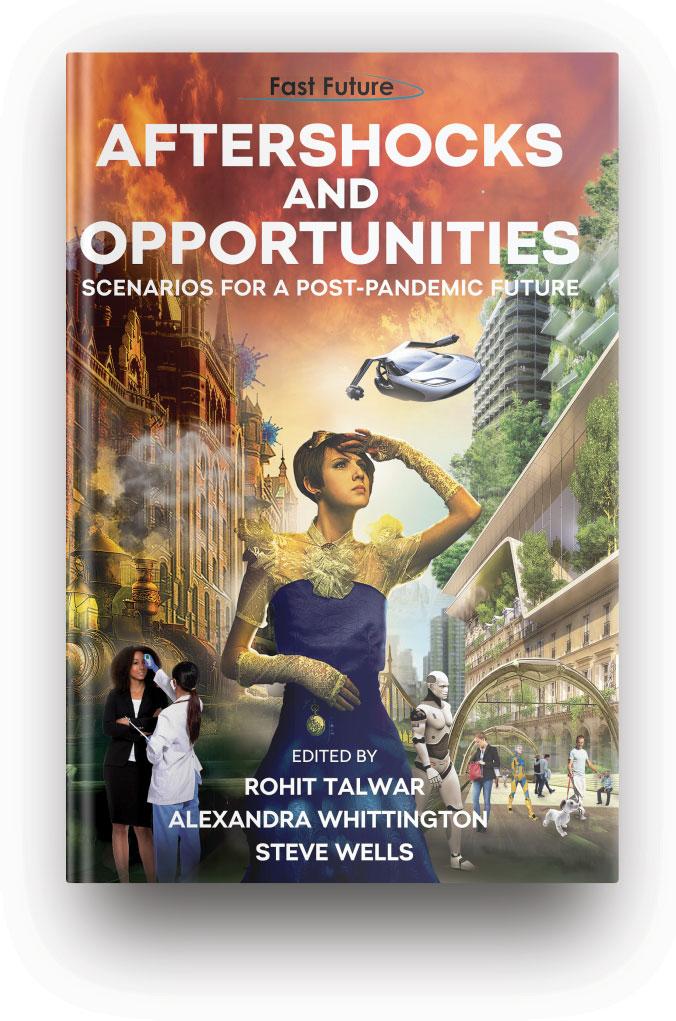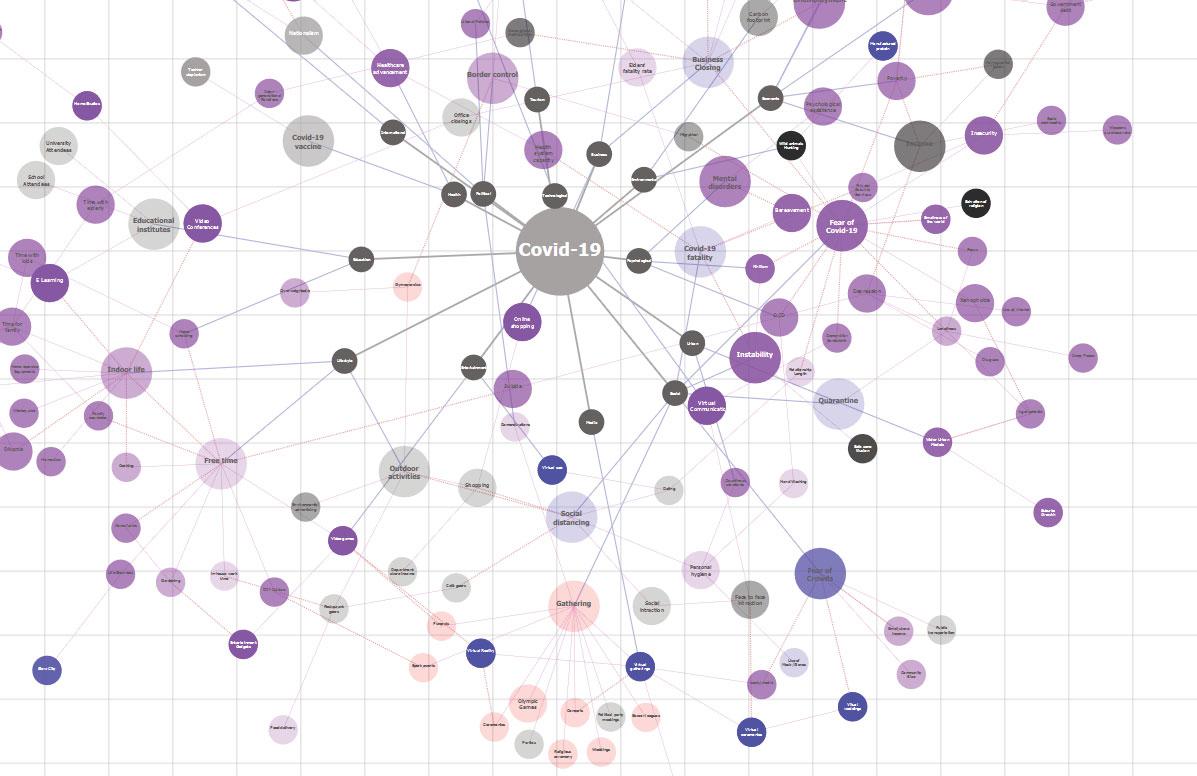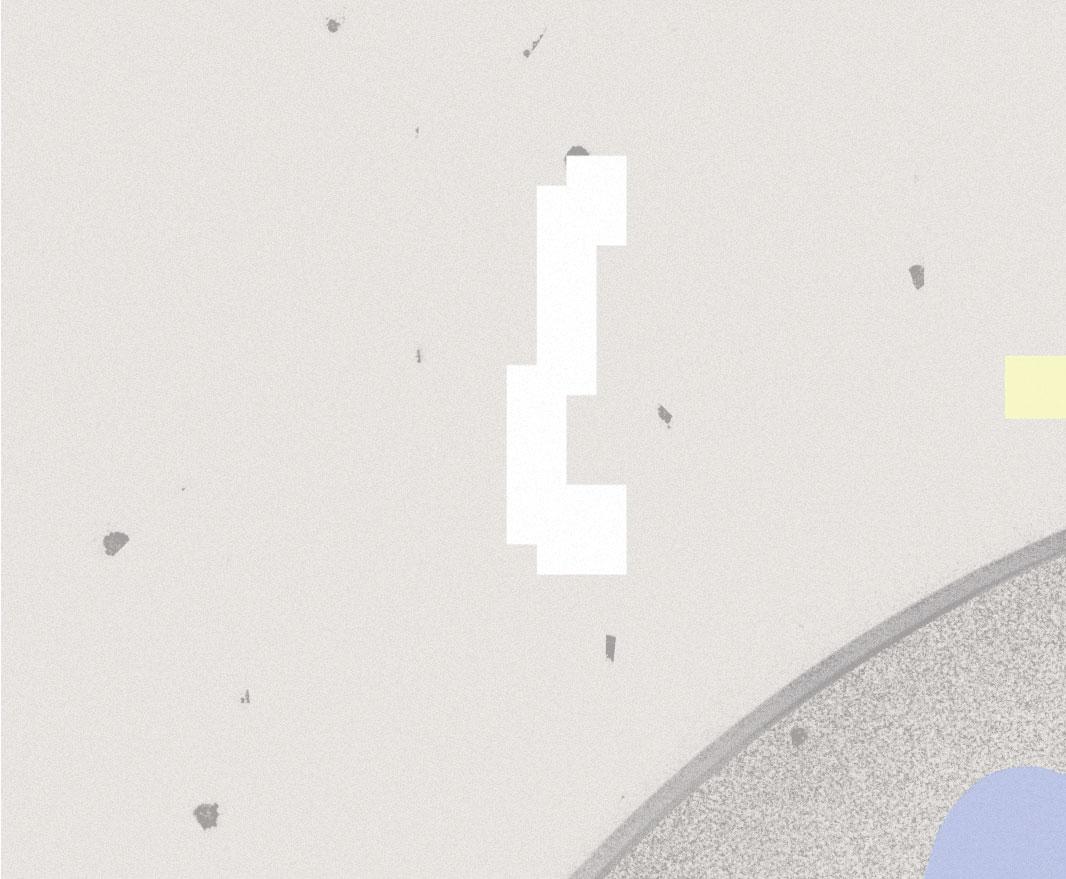
3 minute read
FUTURES BAROMETER
Claire Nelson FUTURES BAROMETER
The Futures Barometer aims to take the impression of what people feel about the future that appears to be emerging. According to World Economic Forum, here are 10 of the Technologies that will be transforming the world by 2025. Our sentiment meter is as follows:
Probable (+1) / Plausible (0) / Possible (-1). What’s Your Take?
AI-optimized manufacturing (+1)
By 2025, a ubiquitous stream of data and intelligent algorithms will enable manufacturing lines to continuously optimize towards higher levels of output and product quality – reducing overall waste in manufacturing by up to 50%. We will enjoy higher quality products, produced faster, at lower costs.
A far-reaching energy transformation (-1)
In 2025, carbon footprints will be viewed as socially unacceptable, like drunk driving. A sustainable, net-zero future will be built through energy transformation that signifi cantly reduces carbon emissions, and a carbon management industry that captures, utilizes and eliminates carbon dioxide.
A new era of computing (0)
By 2025, quantum computing will be able tackle meaningful, real-world problems. One major application will be the simulation of complex chemical reactions, a powerful tool that opens up new avenues in drug development. and reduces product development cycles and the costs for R&D.
Healthcare paradigm shift to prevention through diet (0)
By 2025, healthcare systems will adopt more preventative health approaches based on the science behind the health benefi ts of plant-rich, nutrient-dense diets. This is enabled by AI-powered and systems biology-based technology that grows our knowledge of specifi c dietary phytonutrients and functional outcomes.
5G will enhance the global economy and save lives (0)
By 2025, low latency 5G networks would resolve the lack of network reliability due to WiFi and even allow for more highcapacity services like telehealth, telesurgery and ER services and markets that we only imagine - like self-driving bots, and others we can’t imagine.
Putting individuals - not institutions - at the heart of healthcare (0)
By 2025, the lines separating culture, information technology and health will be blurred. Engineering biology, machine learning and the sharing economy will establish a framework for decentralizing healthcare, moving it from
institutions to the individual. Artifi cial intelligence and new supply chain delivery mechanisms will deliver simple, lowcost diagnostic tests globally.
A clean energy revolution supported by digital twins (0)
Over the next fi ve years, the energy transition will reach a tipping point. The ability to monitor structural health in real-time and fi x things before they break will result in safer, more resilient infrastructure and everything from wind farms to bridges and unmanned aerial vehicles being protected by a real-time digital twin.
Understanding the microscopic secrets hidden on surfaces (+1)
Over the next fi ve years, technology that accelerates our ability to rapidly sample, digitalize and interpret microbiome data will transform our understanding of how pathogens spread. These insights will help us avoid and respond to pandemics, and infl uence how we design, operate and clean environments like buildings, cars, subways and planes, in addition to how we support economic activity without sacrifi cing public health.
Machine learning and AI expedite decarbonization in carbon-heavy industries (0)
Over the next fi ve years, carbon-heavy industries will use machine learning and AI technology to dramatically reduce their carbon footprint. However, climate change, as well as regulatory pressure and market volatility, are pushing these industries to adjust.
Privacy is pervasive – and prioritized (+1)
By 2025, privacy-enhancing technologies (PET) as a technology category will become mainstream. They will be a foundational element of enterprise privacy and security strategies rather than an added-on component integrated only meet a minimum compliance threshold.
The Futures Barometer does not claim to be infallible. In fact, its accuracy tends to increase when more people take a measure. So what is your impression of the emerging future.
What’s Your Sentiment? Have Your Say at bit.ly/FuturesBarometerAug20











